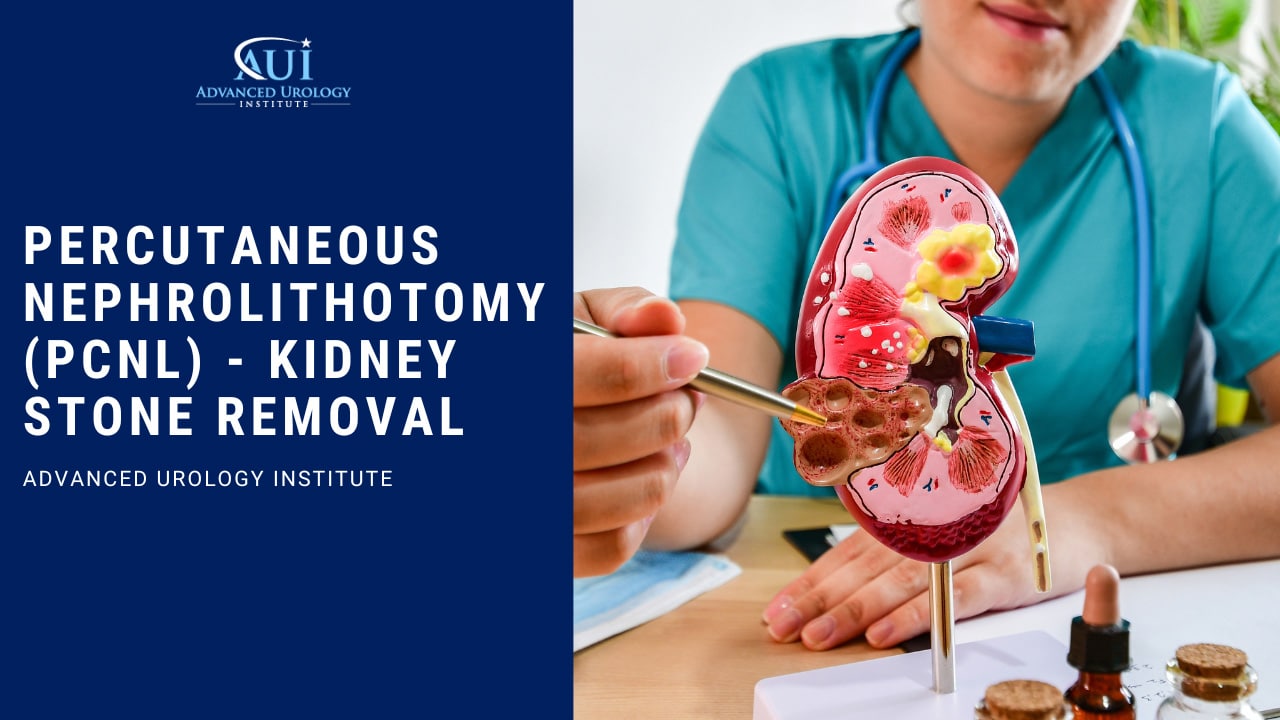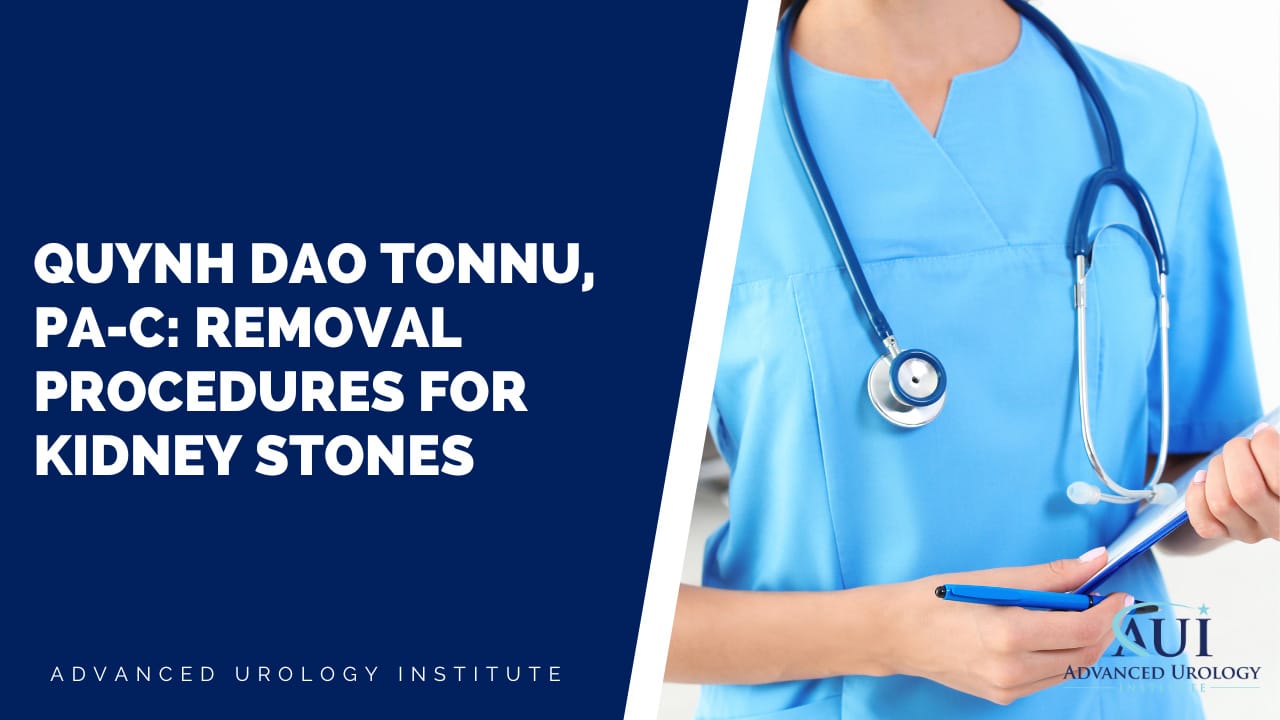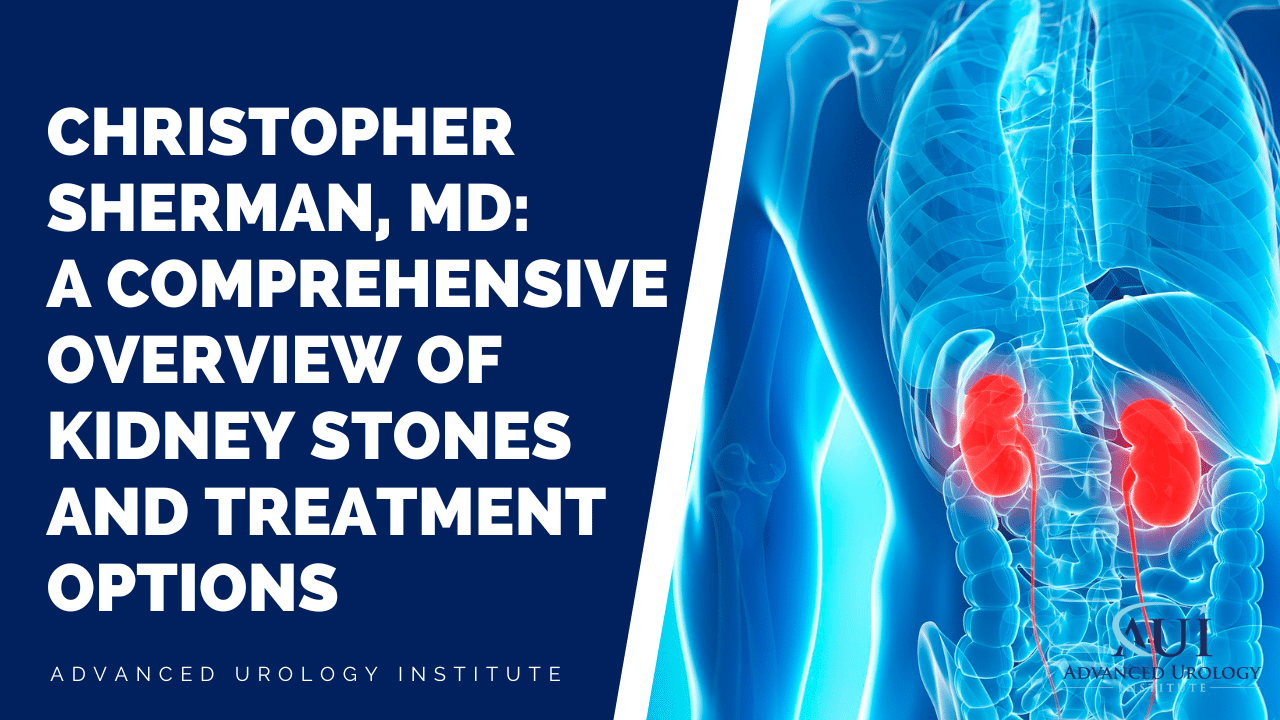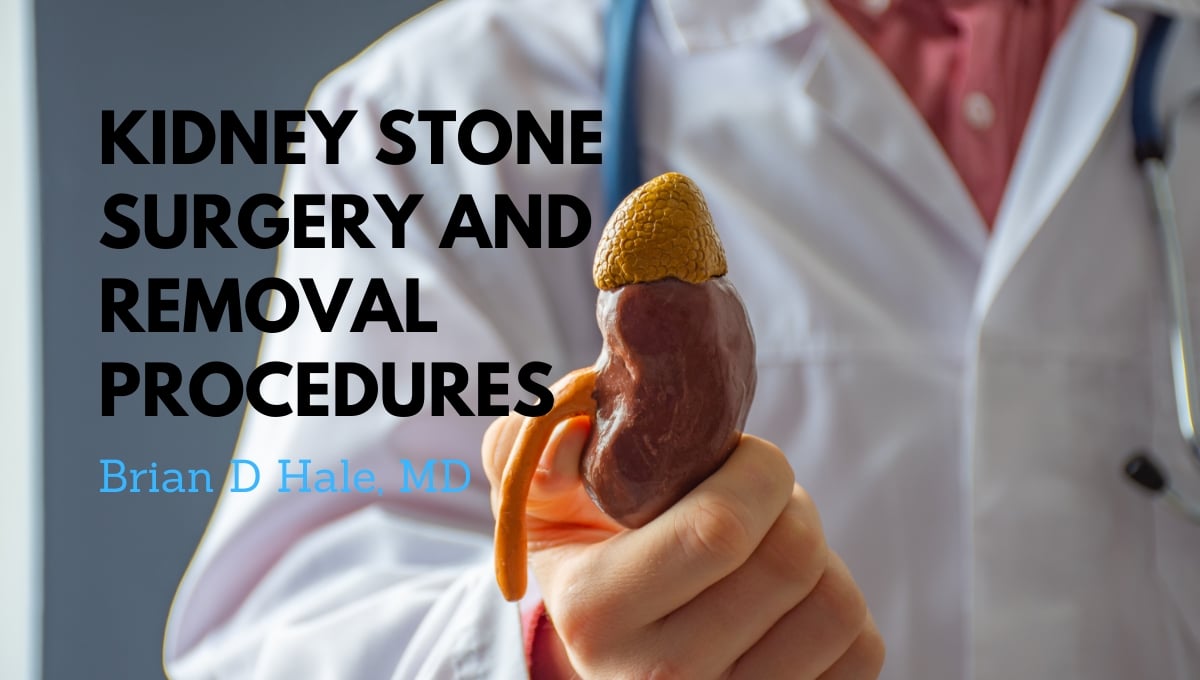Advancements in urology now lead to better treatment solutions for kidney stones such as precutaneous nephrolithotomy or PCNL.
Continue readingQuynh Dao Tonnu, PA-C: Removal Procedures for Kidney Stones
Discover effective removal procedures for kidney stones from Quynh Dao-Tonnu, a physician assistant in Orange City, FL.
Continue readingChristopher Sherman, MD: A Comprehensive Overview of Kidney Stones and Treatment Options
Exploring the World of Kidney Health🩺📚 Christopher Sherman, MD: A Comprehensive Overview of Kidney Stones and Treatment Options
Continue readingKidney Stone Surgery and Removal Procedures
Kidney stones can be stubborn and painful. In many cases, patients rely on a urologist for help removing these painful obstructions. Kidney stones are hard deposits of minerals that form in the body and can cause blockage in the urinary tract. Urologists will decide how to treat the stone based on factors like its size, the patient’s health and the amount of pain it’s causing.
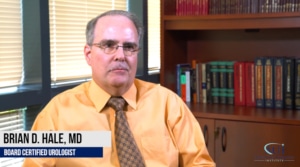 One cutting-edge and noninvasive method for treating kidney stones is called shock wave lithotripsy. Board-certified urologist Dr. Brian D. Hale describes it as using water waves to break up the stone. A machine is put against the patient’s body and creates small explosions. The water waves from the explosions target the stone. As many as 2,500 water waves are directed at the stone during a single treatment.
One cutting-edge and noninvasive method for treating kidney stones is called shock wave lithotripsy. Board-certified urologist Dr. Brian D. Hale describes it as using water waves to break up the stone. A machine is put against the patient’s body and creates small explosions. The water waves from the explosions target the stone. As many as 2,500 water waves are directed at the stone during a single treatment.
These waves break the stone into small pieces similar to sand. The patient will be able to pass these much smaller pieces with greater ease. The whole treatment takes about 25 minutes. The procedure is mostly pain free but does require the patient to go under general anesthesia. In the early 2000s, patients were not required to go under anesthesia for this procedure. However, it was found that natural movements from the patient made it difficult to concentrate the water waves on the stone, so putting patients under anesthesia is now the general practice.
Each case of kidney stones is different, and noninvasive measures are not always an option. An alternative procedure for stone removal is to use a scope to go up the patient’s penis through the urethra to the kidney and then use a medical laser to break up the stone and pull out the fragments. This is the preferred method for some of the smaller stones that cannot be broken up with shock wave lithotripsy.
For larger stones in the kidney, urologists may recommend a more invasive form of surgery called percutaneous nephrolithotomy. In these cases, the urologist will make a small incision in the patient’s back to reach the kidney directly. The urologist then will use a scope and either a laser or ultrasound energy to break up the stone. This procedure also requires general anesthesia and the patient may need to stay in the hospital for one to two days to recover.
There are many options for patients suffering from painful kidney stones. The many urologists of the Advanced Urology Institute have committed to finding the best options to relieve the pain of kidney stones. For more information, visit the Advanced Urology Institute website.
Kidney Stones: Who is at Risk
Kidney stones are a common medical issue that arises when hard deposits of minerals form in the kidney and can affect the urinary tract. These stones can cause severe pain in the abdomen and groin, nausea, and pain during urination. Kidney stones have no single or set cause. Anyone is at risk of developing kidney stones at some point in life.
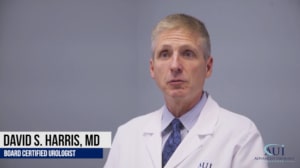 Although anyone can develop stones, there are certain factors that can indicate who gets them and how they occur. As urologist Dr. David S. Harris states, “There are certain features of a person’s stone history that are predictors to us if they’re going to have more stones.” A patient suffering from kidney stones will want to consult a urologist to see what can be done to limit the chances of developing kidney stones in the future.
Although anyone can develop stones, there are certain factors that can indicate who gets them and how they occur. As urologist Dr. David S. Harris states, “There are certain features of a person’s stone history that are predictors to us if they’re going to have more stones.” A patient suffering from kidney stones will want to consult a urologist to see what can be done to limit the chances of developing kidney stones in the future.
A urologist may want to do a urine or blood analysis to see if there are any reasons for a patient to develop kidney stones. A urologist also may want to address some common risk factors for kidney stones. For instance, dehydration is a very common cause of kidney stones. For this reason, people who live in warm climates and are at greater risk of dehydration are also at greater risk of developing kidney stones. A urologist may recommend that someone living in a warm climate like Florida drink plenty of fluids every day.
People with diets high in salt, protein and sugar are also at increased risk of developing kidney stones. Too much salt especially increases the amount of calcium a person’s kidneys must filter, increasing the chances of stone development. Obesity also increases the risk of developing kidney stones, so weight management is something a urologist will strongly recommend if that is a factor.
Beside dehydration and dietary choices, genetics can play an important role in an individual’s risk of developing kidney stones. If someone in your family has kidney stones, then you are more likely to develop them as well. And once you develop kidney stones you are at a greater chance of developing stones in the future. For this reason, in addition to adjustments in water intake and diet, urologists sometimes will recommend medications.
Just because someone has had kidney stones before doesn’t mean they will have to suffer with them the rest of their lives. At the Advanced Urology Institute, doctors work with their patients to find and correct root causes for kidney stones. For more information, visit the Advanced Urology Institute website.



